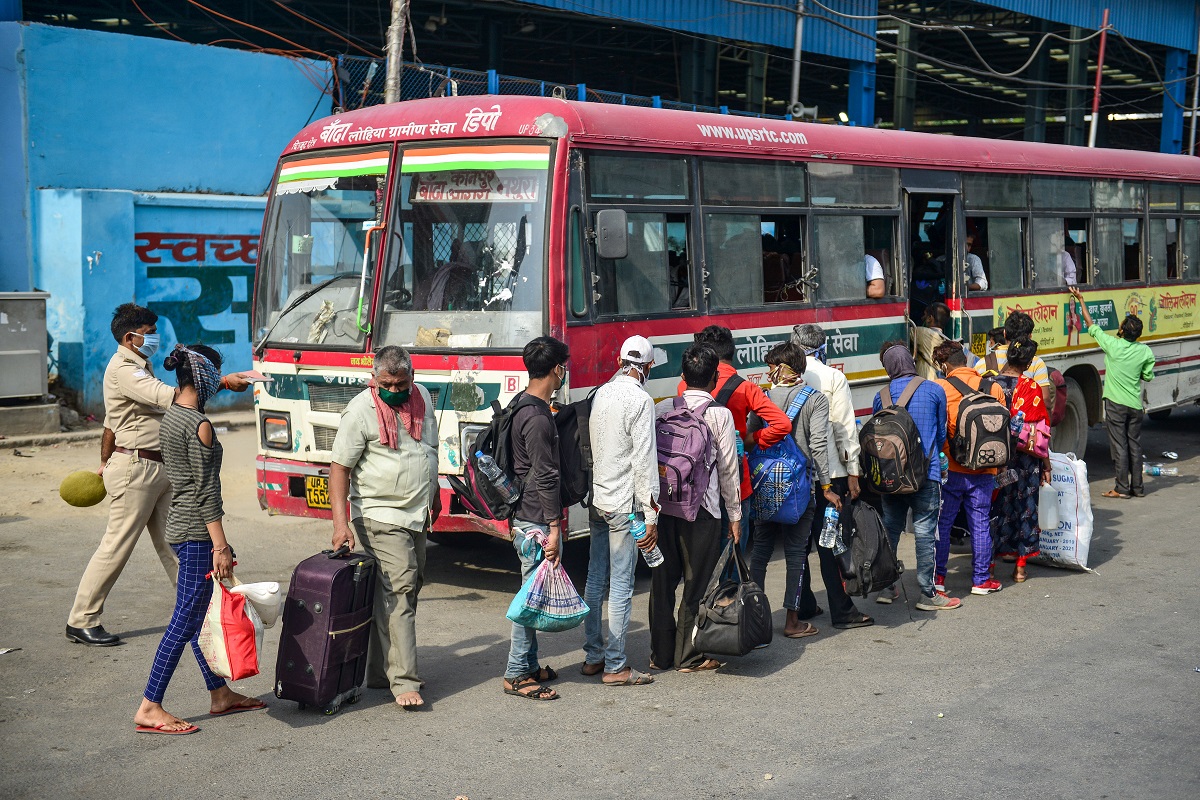Even as governments urged migrants to stay wherever they are, lack of money, shelter and apathy from the very people they have been engaged with has led to a major exodus of migrant labourers from the national capital.
One such hub of the exodus saga has emerged in Chhatarpur, on the borders of South Delhi.
Though initially when the lockdown first kicked in and the migrants started walking or assembled in large numbers at Anand Vihar Bus Station, it was the non-availability of food and other essential commodities.
Two months down the lane, things have changed.
While the uncertainty around their future was the first reason for pushing them into the unknown, it is the unavailability of jobs, food and essential supplies, and finally – the clear apathy by their employers and landlords — with no money for rent that launched them into their perilous journey.
Speaking to IANS, one of the migrants who hails from Bihar and was earlier engaged in a tailoring unit said, “The factory where I used to work was shut due to the lockdown and has not yet openedAll my resources got exhausted.
“Our factory owners have told us that the unit will not be opening for the next few months. So, as there is no money to pay the rent and buy food, I decided to go back. When I heard that the government is sending back the migrants, we came here to avail the opportunity,” the man in his 40s added.
Another reason for the exodus is slashing down of manpower by many factory owners in keeping with the new guidelines on social distancing.
Ravinder Sahni, who used to work in a stitching unit of an export company narrating his ordeal said, “Our company has said that only 33 per cent of the staff will work and as there are no new orders and only the pending work is being completed, our company has said that they don’t have any work for me now.”
“Following this, I heard about the Delhi government’s initiative of sending migrants back home so I thought I would move back to my hometown in Bihar’s Motihari because of which I came to Chattarpur at around 4 a.m. in the morning to avail this facility,” Sahni added.
The Delhi government is sending migrants back to their hometown through buses and trains. According to District Magistrate (South) BM Mishra, not less than 23,000 migrants, including students were sent back to their respective homes by Thursday.
Explaining the process and arrangements for the journey of these migrants, Additional District Magistrate (ADM) South said: “We have arranged for the stay of these migrants inside some schools near the temple in Chhatarpur. Some halls inside the temple has been used for this purpose.”
He said dedicated trains were being arranged for their travel. First, the listing of these passengers is done and then after sorting out that who will be going to which place, we then initiate the medical screening.
“After these two steps are over, these people are sent to the railway stations through the DTC buses. In the buses also, we maintain social distancing norms and hence not more than 20 people are allowed to travel in one bus. Similarly, in the trains also arrangements are made accordingly,” Gupta said.
While the closure of the industries and lack of income remained the on ground issue for the exodus of these migrants, a sense of psychological security and the relief of being home is also an important trigger for this massive exodus.











